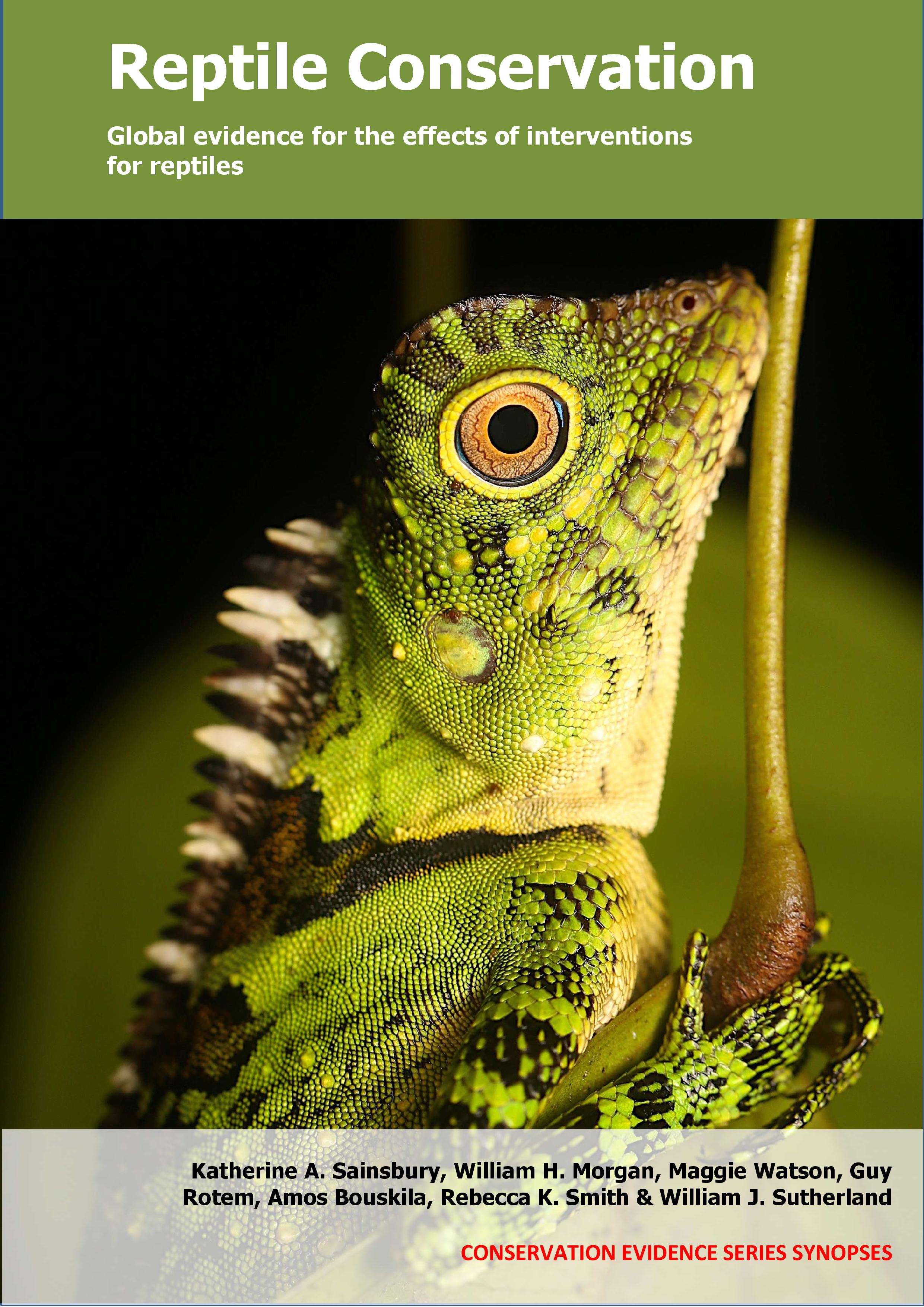Commercially breed reptiles to reduce pressure on wild populations
-
Overall effectiveness category Awaiting assessment
-
Number of studies: 1
View assessment score
Hide assessment score
How is the evidence assessed?
-
Effectiveness
not assessed -
Certainty
not assessed -
Harms
not assessed
Study locations
Supporting evidence from individual studies
A study in 2014 in the Cayman Islands (Nuno et al. 2018) found that where there was a commercial turtle farm, consumption and purchase of wild turtle products was rare, though some residents still showed a preference for wild turtle meat. Overall, around 1% of households illegally consumed eggs in the prior 12 months and 2% illegally bought turtle meat. Among consumers who preferred buying uncooked turtle meat, 14% showed a preference for wild meat over farmed meat. Of residents that consumed turtle during the prior 12 months, 37% bought it from the turtle farm and 62% did not buy uncooked turtle meat (e.g. consumed at restaurants). During the 12 months of the study, no source of legal, wild turtle meat was available to consumers. In 1968, a commercial breeding operation was established to provide turtle meat for consumption and reduce pressure on wild stocks. In 2014, surveys of 100 households from each of six districts were carried out, and respondents were asked about turtle meat consumption, purchase and participation in illegal behaviours relating to sea turtles (see paper for details of questioning methods). In addition, 182 consumers of turtle meat were asked further questions about their preferences.
Study and other actions tested
Where has this evidence come from?
List of journals searched by synopsis
All the journals searched for all synopses
This Action forms part of the Action Synopsis:
Reptile Conservation
Reptile Conservation - Published 2021
Reptile synopsis





)_2023.JPG)














